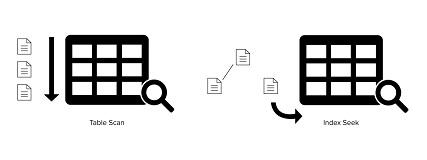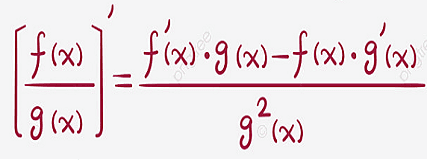SQL - Use The Index
Curated from: use-the-index-luke.com
Ideas, facts & insights covering these topics:
6 ideas
·267 reads
4
6
Explore the World's Best Ideas
Join today and uncover 100+ curated journeys from 50+ topics. Unlock access to our mobile app with extensive features.
Index Overview
What is it?:
- A stand-alone database structure
- Redundant information, well ordered, that acts as a map/reference to the table
What is it good for?:
- Makes the SELECT/retrieval queries fast
Does it have any disadvantage?:
- It requires disk space
- It requires RAM to take advantage of it entirely
- Causes maintenance overhead for write operations with each INSERT/UPDATE/DELETE
Creating index syntax in POSTGRESQL:
CREATE INDEX e_idx ON users (email)
10
115 reads
Single vs Concatenated Indexes
Terminology:
- Single Index = Single-Column Index
- Concatenated Index = Multi-Column Index
How indexes work:
- Index is used to find data fast, therefore it looks for the WHERE clause that defines the search condition
When to use Single-Column Indexes:
- When most of the time that indexed column is used in the WHERE clause
Index on (x):
SELECT * FROM table WHERE x = 11
When to use Multi-Column Indexes:
- When more columns are used in the WHERE clause
Index on (t, x):
SELECT * FROM table WHERE t = 9 and x = 11
9
57 reads
Order in Multi-Column Index Matters
Order of the columns matter.
The index is useless if the first column doesn't appear in the WHERE clause.
Example 1:
An index on (t, x) will not be used in this query:
- SELECT * FROM table WHERE x = 11
Example 2:
However an index on (x, t) will be used in both of these queries:
SELECT * FROM table WHERE x = 11
and
SELECT * FROM table WHERE t = 9 and x = 11
9
24 reads
Functions on Indexes
Wrapping the indexed column in a function nullifies the index almost completely.
Index:
CREATE INDEX e_idx ON users (email)
Query:
SELECT COUNT(*)
FROM users
WHERE UPPER(email) = '[email protected]'
This will read the full index end to end which is only slightly better than reading full table.
8
25 reads
Index on Text Columns
When it can be used:
1. Exact matches:
- SELECT * FROM table WHERE x = 'sql'
2. Using wild card character (% or _) at the end:
- SELECT * FROM table WHERE x LIKE 'sq%'
3. Less effective, but still useful, using wild card character in the middle:
- SELECT * FROM table WHERE x LIKE 's_l'
When it is useless:
When wild card character is used in the beginning:
- SELECT * FROM table WHERE x LIKE '%ex'
8
20 reads
What to keep in mind?
- Avoid using functions in WHERE clause on indexes when it is not needed
- Use LIMIT when partial results are needed
- Order of columns in Multi-Column Indexes is important
- Extra conditions in WHERE clause can ruin the use of index-only scan, which doesn't access the actual table at all. Even if the filter limits the results more, it requires more processing
- Use LIKE filters wisely as explained in the previous idea
8
26 reads
IDEAS CURATED BY
Similar ideas
13 ideas
How to Excel in Tech Without Learning to Code
future.a16z.com
8 ideas
6 Life Lessons from Link – The Hero of Time
zelda.fandom.com
Read & Learn
20x Faster
without
deepstash
with
deepstash
with
deepstash
Personalized microlearning
—
100+ Learning Journeys
—
Access to 200,000+ ideas
—
Access to the mobile app
—
Unlimited idea saving
—
—
Unlimited history
—
—
Unlimited listening to ideas
—
—
Downloading & offline access
—
—
Supercharge your mind with one idea per day
Enter your email and spend 1 minute every day to learn something new.
I agree to receive email updates






